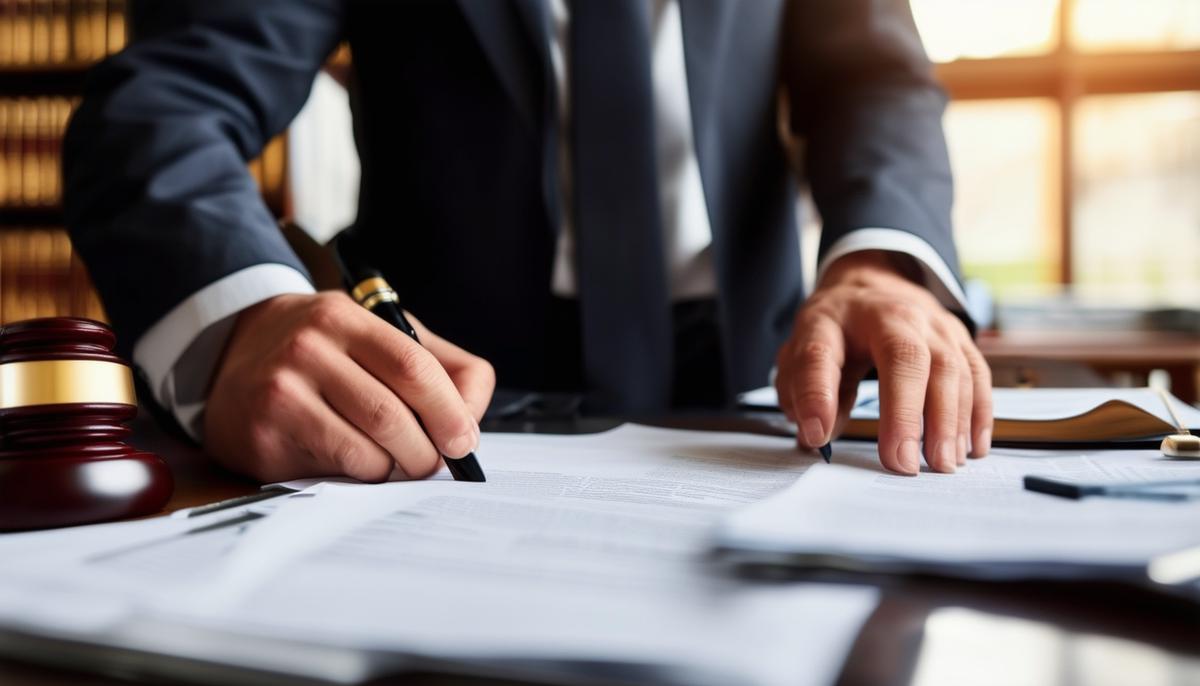
02 Nov Deposition Preparation Guide
How to Prepare for a Legal Deposition
Scheduling and Setup
Send a letter proposing multiple dates and locations for the deposition to ensure both parties have adequate preparation time and access to necessary resources. Select a court reporting service that aligns with the deposition format, whether it’s virtual or in-person.
Verify if any participants require an interpreter, mainly if they are hearing-impaired or not fluent in English. Prepare several copies of relevant documents, such as the Civil Rules concerning deposition practice and any court orders or subpoenas that relate to the deposition.
Map out logistics in advance regarding the room’s setup and technology needs. This includes layouts for seating arrangements, ensuring a reliable internet connection for virtual participation, and efficiently setting up recording equipment.
- Define clear guidelines with your client or witnesses on what documents or materials they should bring to the deposition.
- Emphasize the importance of punctuality to all parties involved.
- Maintain open communication with all participants before the deposition.
Preliminary Preparation
 Gather and review all relevant documents, subpoenas, and interrogatory disclosures beforehand. Create a comprehensive index detailing where important information can be found quickly in each document.
Gather and review all relevant documents, subpoenas, and interrogatory disclosures beforehand. Create a comprehensive index detailing where important information can be found quickly in each document.
Rehearse the documents’ contents to memorize key points and understand their implications thoroughly. Use the insights gained to prepare a list of possible questions you might face from the opposing counsel and develop your responses.
Consider simulating the actual deposition in a mock setup with a colleague to gain perspective on how well-prepared you are and what aspects need fine-tuning.
Witness Coaching
Train your clients to actively listen to every question asked, emphasizing the importance of not starting their response until the query is fully expressed. Impress upon them the necessity of fully understanding each question they’re faced with.
Direct your clients to take a brief moment to reflect on their answers before verbally responding. Emphasize the power of brevity, training them to give exact answers without veering off into tangential details unless specifically asked to expound.
Ethical and Legal Considerations

#image_title
Understand the intricacies of attorney-client privilege and grasp where the boundaries of this privilege extend and where they do not. Navigate the deposition in an ethically compliant manner by strictly adhering to all legal standards governing the conduct of depositions.
Avoid any coaching that could lead a witness to provide anything but their true personal knowledge or genuine belief. Providing witnesses with outlines or summaries of anticipated deposition questions based on general topics can be a safeguard as long as it does not interfere with the authenticity of their testimony.
Be aware of the subtler forms of ethical pitfalls, such as the inadvertent disclosure of privileged information.
Managing Deposition Dynamics
Ensure that the deposition setting is as distraction-free as possible by securing a location away from noisy areas, disabling unnecessary electronic devices, and positioning the seating strategically.
When discussing attire and body language with witnesses, stress the importance of professional dress as it can significantly influence perceptions of credibility and sincerity. Coach witnesses to adopt a posture of openness and attentiveness.
Handle nervous tics by identifying them in training sessions and providing tools to manage physical responses under stress or fatigue. Calming techniques before answering, taking deep breaths, or having a glass of water available can help control these nervous habits.
- Smith J, Johnson R. Preparing Witnesses for Deposition: Best Practices and Ethical Considerations. J Legal Educ. 2019;69(2):387-401.
- Davis K. The Art of the Deposition: Strategies for Success. Litig. 2018;44(3):28-33.





